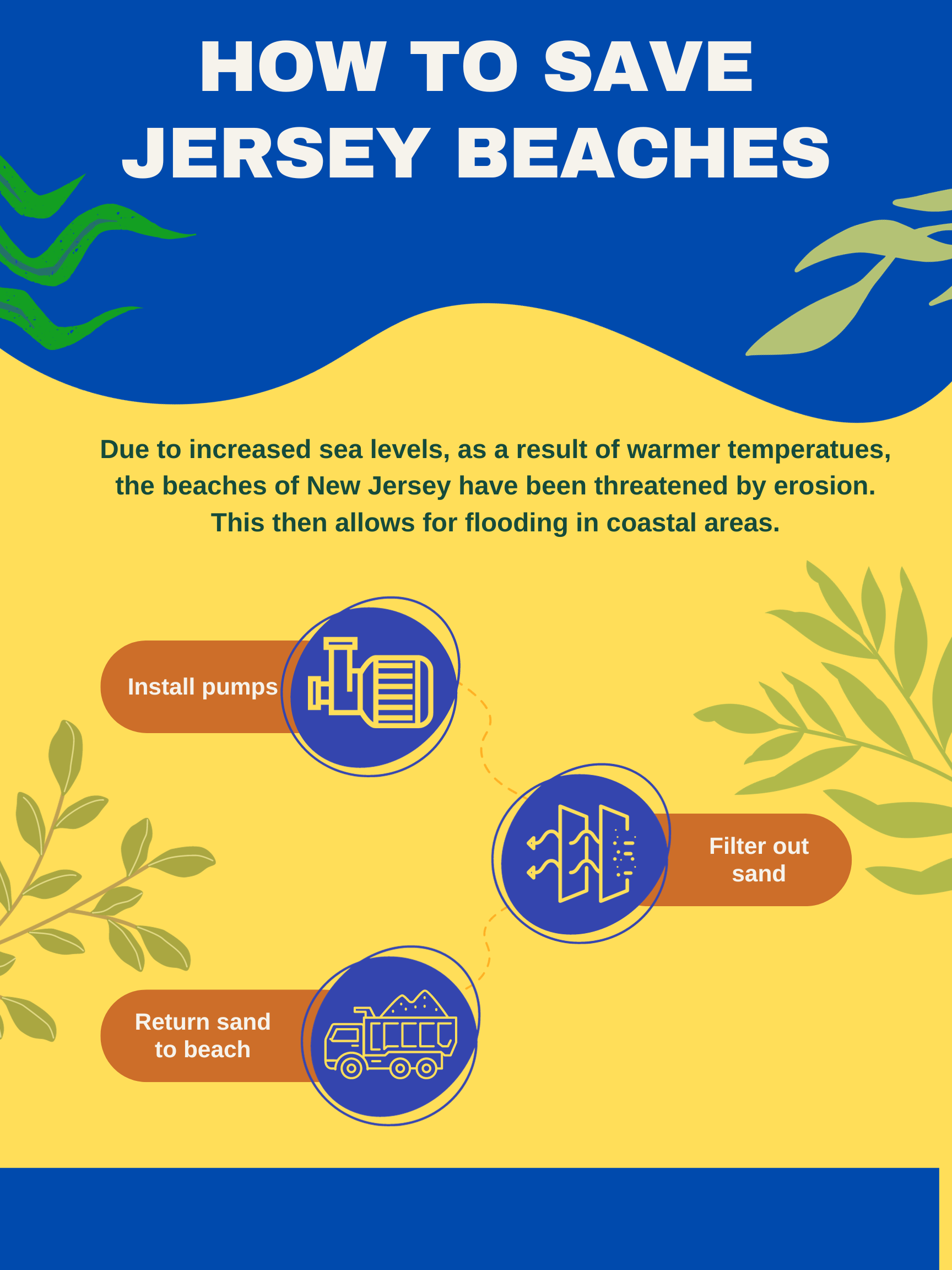New Jersey's normal climate features moderately cold winters and warm, humid summers. However, over the last century, the state has experienced a significant warming of approximately 3 degrees, leading to more frequent heavy rainstorms and a rise in sea levels at a rate of one inch every six years. These changes have resulted in adverse effects, including eroding beaches, submerging low-lying areas, exacerbating coastal flooding, and increasing the salinity of estuaries and aquifers. Agriculture, fisheries, public wealth, and water resources have been all negatively affected by these climate changes. Coastal areas, particularly towns, are subjected to danger as the sea levels continue to rise, contributing to coastal flooding.
One solution to combat eroding beaches and coastal flooding is to instal pumps every 5 miles along the New Jersey coastline. These pumps will suck in eroded sand and pump it back into the beaches. It will filter out the water so it may return back to the ocean while relatively dry sand is returned to the beaches.
This solution will not only combat beach erosion, but also help protect coastal areas from flooding as sand will be returned to the beaches, ensuring water has a harder time leaking into coastal areas.
Contact us
Thank you for your interest in contacting Future Engineers. We look forward to connecting with you!
General Inquiries
support@futureengineers.orgSponsorship Inquiries
sponsor@futureengineers.org
